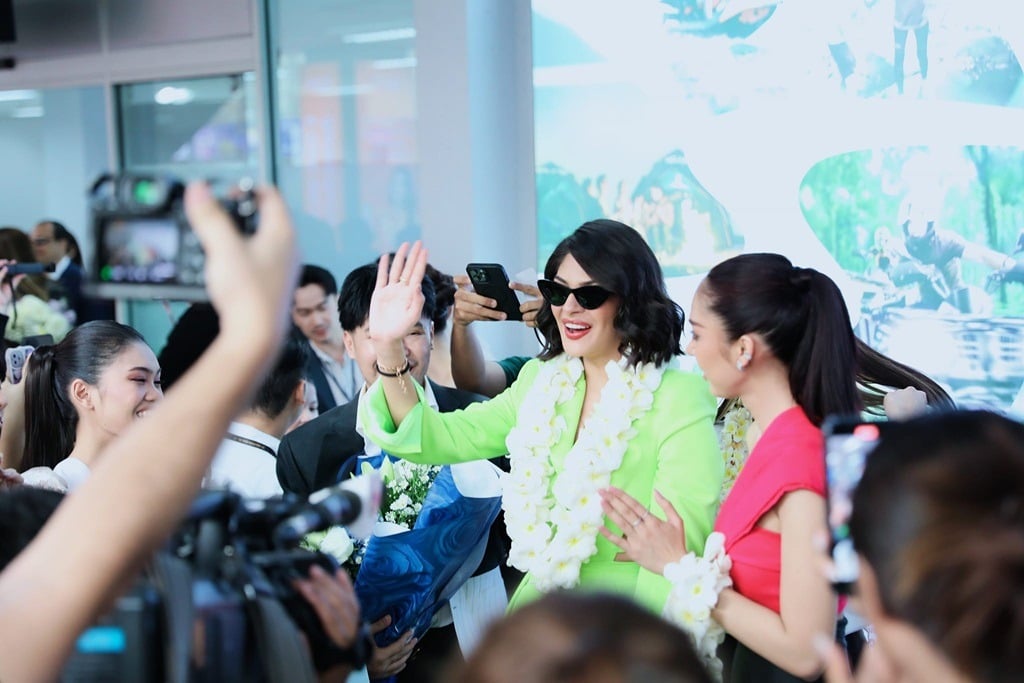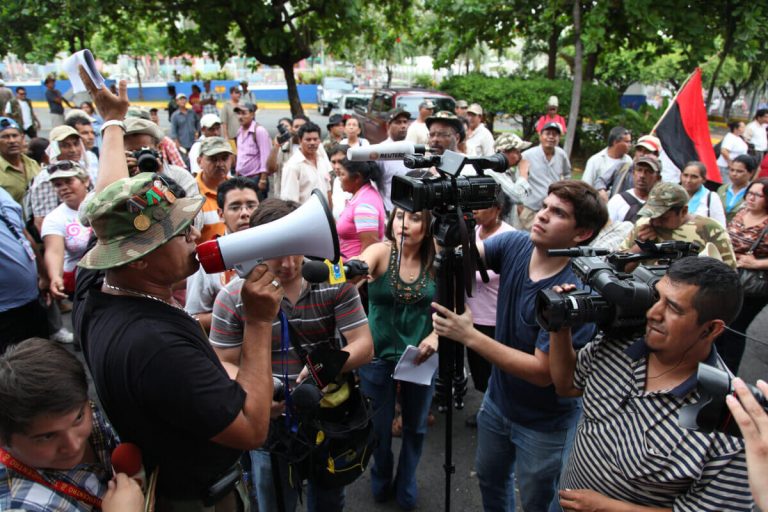4 de marzo 2016

News About Sheynnis Palacios Not Covered by Media Operating in Nicaragua

PUBLICIDAD 1M
PUBLICIDAD 4D
PUBLICIDAD 5D
Harassment of reporters, self-censorship, control over public information and a dual monopoly in television

"La cultura del secreto impide entregar toda clase de información oficial a los medios independientes"
The siege and the barriers blocking access to public information that Comandante Daniel Ortega’s regime has imposed on independent journalism aims to silence all voices in discordance with the official discourse. In doing so, the “people” and even the Ortega camp followers themselves are losing something very essential: the right to inform themselves freely. This is the reflection formulated by several Nicaraguan reporters and editors during a bittersweet celebration of National Journalists’ Day this past March 1st.
Jackson Orozco is the economic reporter for the “100% Noticias” [100% News] television station. Although his focus is on underlining the positive aspects of the country’s economy, he notes regretfully that obtaining information is a useless task. “I need information and sometimes it’s not even to question or criticize, but simply that I need facts to back up my notes…but I can’t even get that,” Orozco said.
The tight control over communication on the part of the Sandinista government is the work of the first lady, Rosario Murillo. As chief government spokesperson, she delivers all public information via her daily monologues broadcast by the official communications media, many of them run by her children.
With their discreet management of the international cooperation funds from Venezuela, the presidential family has founded or taken over the majority of the television channels. In addition to the existing legion of channels and broadcasting entities they control, the Nicaraguan state telecommunications agency Telcor recently awarded the license for Channel 22 to Difuso Comunicaciones S.A., a company owned by Juan Carlos Ortega Murillo.
The other half of the television channels are administered by the Mexican businessman Angel Gonzalez, giving way to a dual monopoly over TV that disseminates government propaganda, entertainment and sensational crime news.
“The concentration of the media is such that at this point very few outlets can introduce a discourse that’s different from those in power. This should be sounding an alarm for Nicaraguans because when there are no voices left to say something different, we’ll all have lost, including the most dedicated Ortega supporters,” affirmed Fabian Medina, editor of “Magazine” and of the “Domingo” Sunday supplement of the La Prensa newspaper.
In Medina’s experience, those in the Ortega camp need an independent media to “find out about things they don’t know”; or when they have problems with those in power, they need to have recourse to independent publications to make their denunciations.
Journalist and investigator Alfonso Malespin sees the concentration of the media bringing less diversity in communications, meaning that the citizenry have less opportunity to understand “the situations that occur in Nicaragua.”
“People are being denied background knowledge of things, like the recent prisoner release. All of a sudden we found out that eight thousand people were being freed and placed under house arrest. No one knew what procedure was followed in doing so beyond what the government spokesperson said. How can we confirm that the judges were aware of what they signed?” questioned Malespin.
Self-censorship
Beyond the concentration of the media outlets and the tight control over information imposed by the Ortega regime, journalists take on self-censorship as a way of life - “a culture of accommodation in order not to lose our jobs,” sustained Azucena Castillo, director of the radio station “Radio Universidad.”
Although no journalists have been killed in Nicaragua, as they have in the northern triangle of Central America and in Mexico, Elizabeth Romero, veteran reporter for La Prensa, recalled that some journalists have been spied on and harassed by the Nicaraguan Army and state institutions.
“This situation has caused many journalists to censor themselves, which is the worst thing that can happen: be it out of physical fear or fear of legal prosecution, the journalist opts for silence,” Romero said. “But the most worrisome thing is when the communications media prefers not to publish (and we’re already arriving at this extreme) in order to avoid worse consequences,” she added.
In their 2015 annual report, Amnesty International criticized the “harassment” that “some informational media and organizations of civil society” have suffered in Nicaragua.
Castillo indicated that the groups in power “have the economy in their hands” and have bought out the conscience of some journalists. “They’ve also diminished the self-esteem of those journalists who have managed to stand firm,” said the director of Radio Universidad.
Uneven conduct of the private sector
The Nicaraguan reporters feel that the government’s “zero information for the independent press” policy has “infected” private business, even though it’s not a uniform reaction, Medina recognized.
“It’s contagious, because some say, ‘I won’t give information or I’ll stop sponsoring the media that doesn’t adapt to what I want….’ The private sector certainly sets some conditions, but there’s another sector that represents everyone and speaks loudly. Still, other media outlets are left that subsist exclusively on advertising from the private sector,” Medina said.
Journalist Fermina Romero from the “Radio Mujer” station feels that both the government and the private sector “obstruct” the journalists’ professional labors. “They should open up a little more, because it’s in their interest that information be divulged, and we’re the ones who bring it to the people,” she recommended.
Gradual dismantling of the free press
For the editor of “Magazine”, the free press in Nicaragua has been dismantled gradually and without violence. “We don’t see the government acting with military force to confiscate equipment, except in a few provinces,” Medina stated.
According to this editor of La Prensa, the government’s behavior against independent journalism isn’t an isolated case. Medina asserted that since Comandante Ortega returned to power the Sandinista administration has tried to create a uniform society, a uniform discourse “from an inner chamber where the reality of Nicaragua is defined and must be accepted, converting their propaganda into journalism’s one central axis.”
Despite the difficulties, Malespin believes that our obstinate journalism deserves celebration for confronting the political, economic, religious and other de facto powers in Nicaragua. “It’s one of the spaces that constantly clamors – although some people may not feel it – for a rule of law that will allow the rest to express themselves freely without fear of reprisals,” he affirmed.
---
This article has been translated from Spanish by Havana Times.
Read the original version here.
Archivado como:
PUBLICIDAD 3M
Periodista. Destaca en cobertura a violaciones de derechos humanos: desplazamiento forzado, tráfico ilegal en territorios indígenas, medio ambiente, conflictos mineros y ejecuciones extrajudiciales. Premio Iberoamericano Rey de España 2018.
PUBLICIDAD 3D